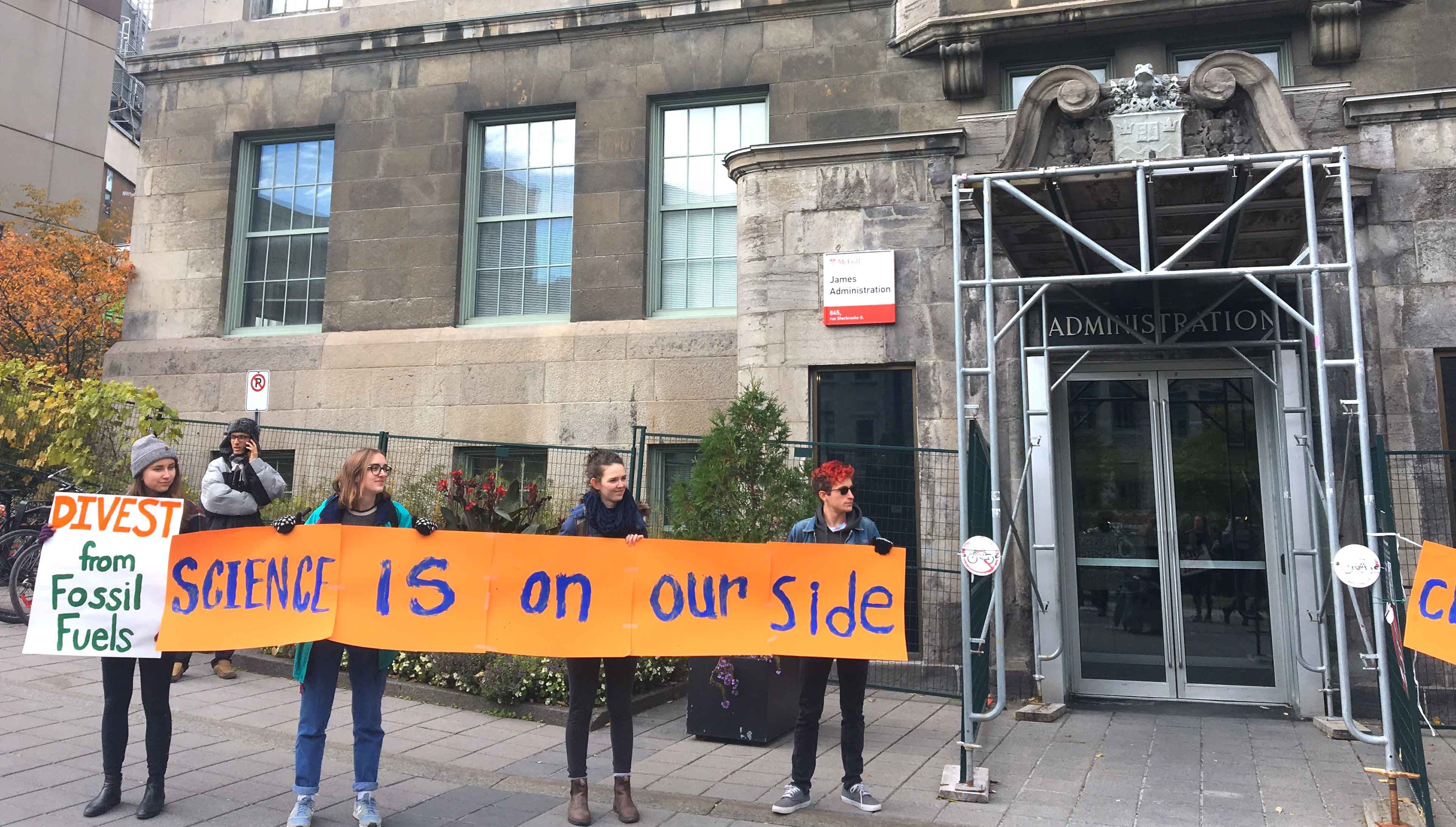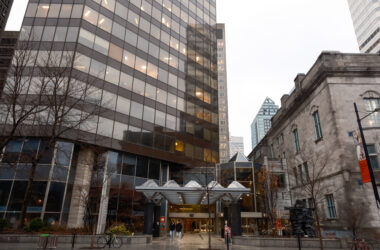Divest McGill held a rally outside the James Administration Building on Oct. 22 during a meeting of the Committee to Advise on Matters of Social Responsibility (CAMSR), protesting McGill’s ongoing investment in companies involved with the fossil fuel industry. The demonstration comes after the McGill Senate approved a motion endorsing divestment from fossil fuels on Sept. 12, an institutional response several years in the making.
“This campaign has been going on for six years, and every year there are new faces, new interest,”
However, Divest’s campaign isn’t over yet. McGill’s Board of Governors (BoG), the university’s highest authority, decided not to implement the Senate’s endorsement and to leave the divestment decision to CAMSR instead.
“We’re having [the protest] because CAMSR is meeting,” Annabelle Couture-Guillet, U3 Arts & Science, said. “We’re here today to remind them that, despite the bureaucratic barriers that they’re using, we still care, and we are not going away,”
Ehab Lotayef, a member of the BoG, also attended the rally. He stressed the importance of divestment.
“We don’t have time to debate and discuss,” Lotayef said. “The environmental situation is really critical, and I think that McGill should take a leading position in practical steps.”
McGill has aimed to promote sustainability through its commitment to carbon neutrality by 2040 and numerous other initiatives on campus such as the Sustainability Projects Fund (SPF). Nonetheless, Jacqueline Lee-Tam, U1 Arts, explained to the protesters how McGill’s investments in the fossil fuel industry negate these initiatives.
“All of McGill’s [sustainability] initiatives are nullified by the fact that [the university has money] invested in the fossil fuel industry,” Lee-Tam said. “If McGill really wants to be a sustainable and carbon-neutral campus then [we must] divest.”
Christina Lau, U1 Sustainability, referenced the growing support for divestment on campus. Besides the Senate, the Student’s Society of McGill University (SSMU) endorsed divestment in 2012, the Faculty of Arts’ endorsed divestment in 2015, and, on Nov. 8, 2017, the McGill Association of University Teachers (MAUT) Council voted to divest from fossil fuels. MAUT council reorganized $500,000 of its investment portfolios, which included fossil fuel companies.
“A lot of people support the divestment movement so I don’t understand why we haven’t gotten to it yet,” Lau said. “The MAUT council [and] the Senate ruled in favor of [divestment]. There’s a lot of reasons to [divest], and there aren’t a lot of reasons not to.”
Lau explained that the new Intergovernmental Panel on Climate Change (IPCC) report motivated her to attend the Divest McGill rally. The IPCC’s report states that only 12 years remain to prevent irreversible, devastating climate change and it recommends staying below a 1.5°C increase from pre-industrial temperature levels. It also outlines several solutions, including cutting fossil fuel use in half in less than 15 years. Currently, a total of 985 countries, associations, universities, foundations, and religious organizations have committed to divestment from fossil fuels.
“The IPCC report that came out on [Oct. 6] outlined a future that is more dire than any of us are prepared for,” Lee-Tam said. “We are going to see small island nations sink. We are going to see increases in climate catastrophes such as hurricanes, typhoons, and floods [….] We need to act. We need to be bold and fearless in the face of climate change.”
Lee-Tam called on CAMSR to consider the findings of the IPCC report.
“We invite CAMSR to think about all these things. We invite CAMSR to consider that we are living in a day and age where fossil fuels are no longer going to be sustaining us.”









